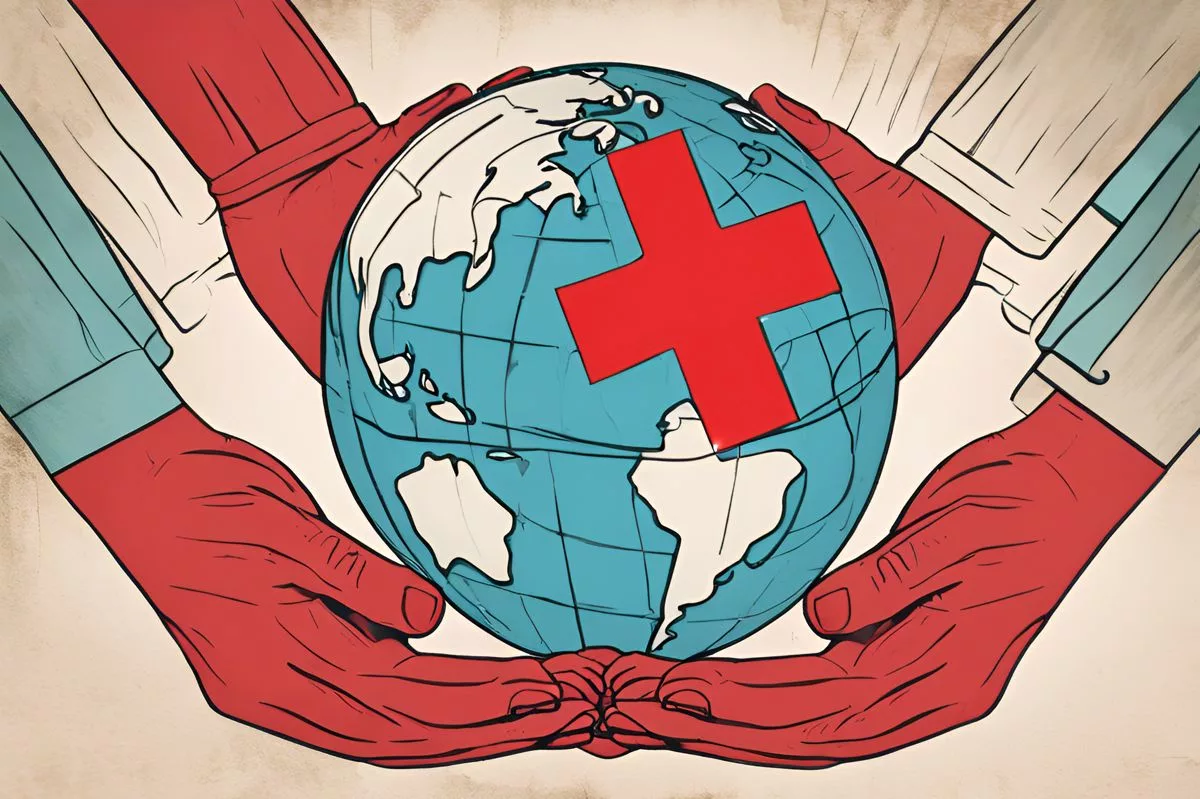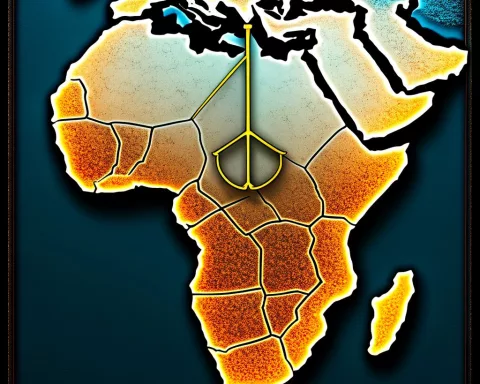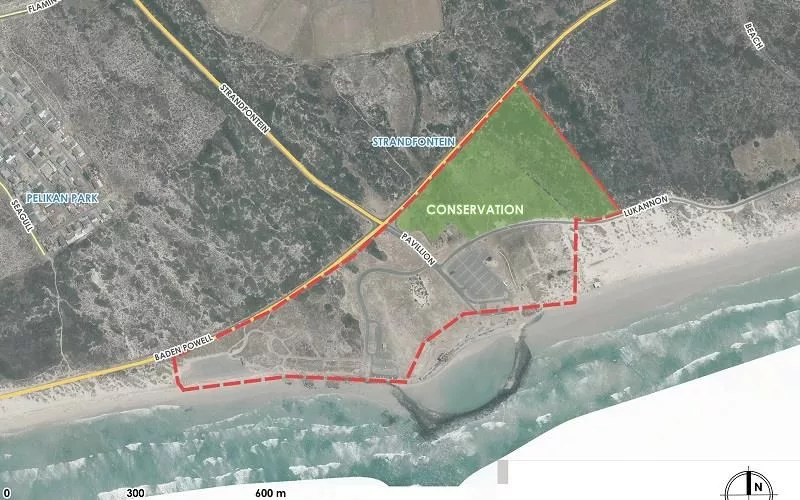The importance of observing and bolstering International Humanitarian Law was emphasized at The 6th International Humanitarian Law Conference of The Commonwealth Red Cross and Red Crescent, in a world grappling with multi-dimensional obstacles. South Africa’s dedication to humanitarian diplomacy, peace, and security was highlighted, as well as the critical role of women in peace and security. The conference provided a platform to discuss the most egregious violations of IHL and underscored the importance of recognizing women as influential actors in cultivating sustainable peace and security. The event set the stage for future conferences and a collective sentiment of optimism.
Commemorating the 6th International Humanitarian Law Conference of The Commonwealth Red Cross and Red Crescent. The conference’s theme, “Towards a universal culture of compliance: The contribution of the Commonwealth to the implementation and development of International Humanitarian Law”, emphasized the importance of bolstering and observing IHL. The event recognized the multi-dimensional obstacles the world is grappling with today, and South Africa’s steadfast dedication to humanitarian diplomacy, peace, and security was highlighted. The critical role of women in peace and security was also discussed.
Commencement and Acknowledgement
The 6th Commonwealth Red Cross and Red Crescent Conference on International Humanitarian Law (IHL) was kicked off with an inspiring welcome address by the esteemed Deputy Minister Alvin Botes. His insightful remarks, supported by a formidable gathering of international dignitaries and professionals, established the framework for an elevated discussion concerning human rights issues.
This conference represented an essential landmark, taking place five years following the preceding one. Deputy Minister Botes conveyed his appreciation to the International Committee of the Red Cross (ICRC) and the British Red Cross for allowing South Africa the privilege of co-hosting the occasion. He also commended the dedication of the Regional Delegation in Pretoria, who persistently worked against resource limitations.
The Underlying Theme and Global Issues
The conference’s theme, “Towards a universal culture of compliance: The contribution of the Commonwealth to the implementation and development of International Humanitarian Law”, was a resounding appeal to the international society. In light of over a hundred armed conflicts presently taking place worldwide, the necessity to bolster and observe IHL has become more crucial than ever.
The event also recognized the multi-dimensional obstacles the world is grappling with today. Current geopolitical complexities, armed clashes, climate alterations, food scarcity, and displacements all pose significant threats to global tranquility and stability. As Signatories to the Geneva Conventions and their supplementary protocols, the participants emphasized the need to revise and reinforce existing mechanisms to counter these challenges.
Contextual Discussions and South Africa’s Role
The conference provided a platform to discuss the most egregious violations of IHL, intensified by the emergence of novel technologies, artificial intelligence, cyber warfare, autonomous weaponry, and digitalization. The attendees shared a consensus on the growing relevance of IHL in safeguarding civilians, civilian infrastructure, and humanity at large.
South Africa’s steadfast dedication to humanitarian diplomacy, peace, and security was another key point of the event. The gathering underscored the urgent need for halting hostilities in conflict-ridden zones, adhering to international law, and the global community’s duty to facilitate negotiations, dialogue, and humanitarian relief.
South Africa’s contribution to promoting international peace and security was highlighted, illustrated by the successful hosting of the inaugural peace negotiations between the Ethiopian Federal Government and the Tigray People’s Liberation Front. This successful mediation process further buttressed the belief in an “African solution to African problems.”
Women’s Role and Reflections
The critical role of women in peace and security, their participation in preventing conflicts, managing them and fostering peace was another essential discussion point. The importance of recognizing women not just as victims, but as influential actors in cultivating sustainable peace and security, was emphasized.
The conference offered an excellent opportunity for IHL stakeholders to introspect on their national progress and experiences. The necessity to reaffirm the relevance of IHL amidst numerous threats was underlined, along with the importance of exchanging successful strategies to boost compliance with IHL and expedite its implementation.
A special tribute was made to humanitarian workers who sacrificed their lives assisting civilians in conflict situations, and those who persist in undertaking complex humanitarian work, risking their personal safety.
Concluding Remarks and Future Prospects
The conference was a substantial success, marked by productive discussions and concrete results. It set the stage for the forthcoming Thirty-Fourth International Conference of the ICRC, slated to take place later this year in Geneva. The collective sentiment was one of optimism, as iterated by Deputy Minister Botes, that this conference would help pinpoint domestic, regional, and global priorities to wholly execute and enforce responsibilities under IHL.
1. What was the theme of The 6th International Humanitarian Law Conference of The Commonwealth Red Cross and Red Crescent?
The theme of the conference was “Towards a universal culture of compliance: The contribution of the Commonwealth to the implementation and development of International Humanitarian Law”.
2. What was Deputy Minister Alvin Botes’ role in the conference and what did he say in his welcome address?
Deputy Minister Alvin Botes gave the welcome address at the conference, establishing the framework for an elevated discussion concerning human rights issues. He also conveyed his appreciation to the International Committee of the Red Cross (ICRC) and the British Red Cross for allowing South Africa the privilege of co-hosting the occasion.
3. What were the multi-dimensional obstacles the conference recognized?
The conference recognized the multi-dimensional obstacles the world is grappling with today, including geopolitical complexities, armed clashes, climate alterations, food scarcity, displacements, and over a hundred armed conflicts taking place worldwide.
4. What was South Africa’s role in the conference and what was highlighted about their dedication to peace and security?
South Africa’s steadfast dedication to humanitarian diplomacy, peace, and security was highlighted at the conference, and the event underscored the urgent need for halting hostilities in conflict-ridden zones, adhering to international law, and the global community’s duty to facilitate negotiations, dialogue, and humanitarian relief.
5. What was the critical role of women discussed at the conference?
The critical role of women in peace and security, their participation in preventing conflicts, managing them, and fostering peace was discussed at the conference. The importance of recognizing women not just as victims but as influential actors in cultivating sustainable peace and security was emphasized.
6. What was the outcome of the conference?
The conference was a substantial success, marked by productive discussions and concrete results. It set the stage for the forthcoming Thirty-Fourth International Conference of the ICRC, slated to take place later this year in Geneva. The collective sentiment was one of optimism that this conference would help pinpoint domestic, regional, and global priorities to wholly execute and enforce responsibilities under IHL.










